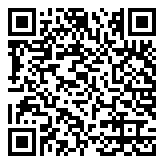

Well testing operations play a crucial role in the oil and gas industry, aiding in the assessment of reservoir conditions and predicting well behavior. This course offers a comprehensive training on well testing, focusing on the principles, methodologies, and practical applications involved. It aims to equip participants with the skills necessary to perform well tests, understand the involved equipment and techniques, ensure safety during operations, and effectively interpret test data to assess reservoir conditions and forecast well performance.
By the end of this course, participants will be able to:
Well testing is an essential process for assessing and optimizing oil and gas reservoir performance. By attending this course, you’ll gain the expertise needed to execute well testing operations confidently, use well testing equipment effectively, and analyze test data to gain valuable insights into reservoir behavior and well performance. With practical experience and advanced skills, you’ll be better prepared to tackle well testing challenges in both onshore and offshore environments. Join us and start your journey to becoming a well testing expert!
